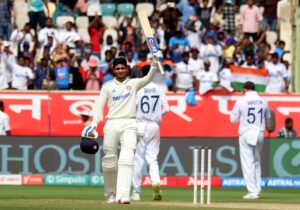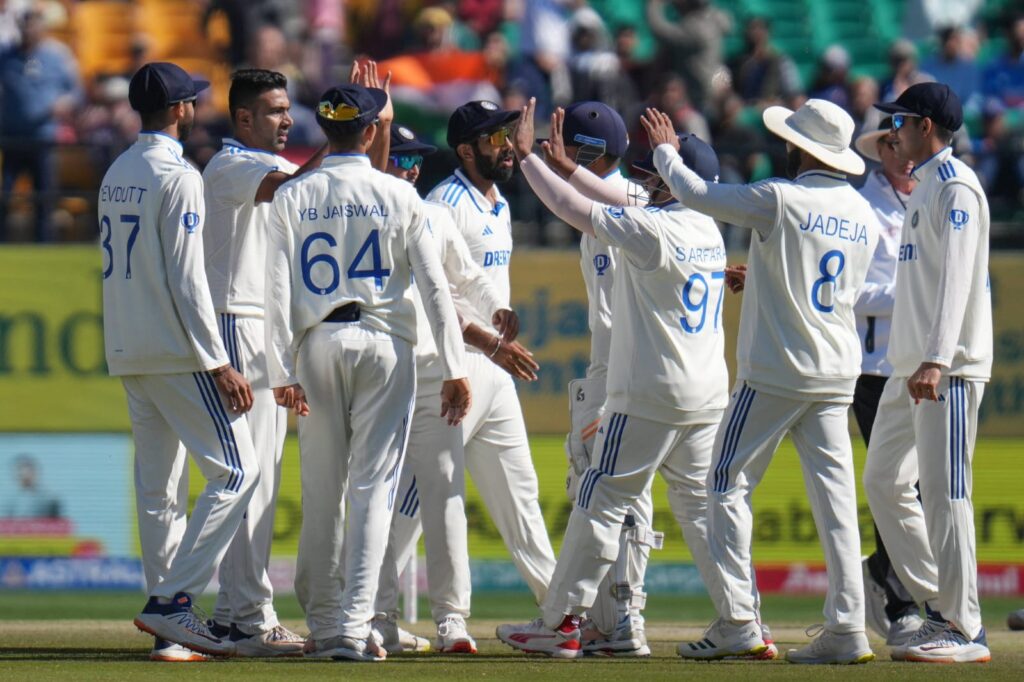
What worked in favour of India that they beat England 4-1 in the Test series? The answer is simple. They were better in all the departments, won the decisive moments and did not lose their grip on the match after getting into good positions except the first Test.
However, it was not that simple, in the absence of frontline players like Virat Kohli and KL Rahul. Jasprit Bumrah and Ravindra Jadeja missed one match each. At different stages of the series, five Indians were handed debut caps. To pull it off in a high-pressure series with a clutch of inexperienced players took some doing.
Fast bowlers deal decisive blows: With the batting unit looking shaky in the first half of the series, the bowlers had to step up. Usually, spinners do this job on home soil. But this time, fast bowlers did the damage a number of times. Jasprit Bumrah broke England’s back and their morale in the second Test. He was at it on other occasions as well, although there were no more five-wicket hauls.
It wasn’t Bumrah alone. On the third morning of the third Test, England were in a strong position. Ravichandran Ashwin had returned home and Bumrah was not getting wickets. Mohammed Siraj put his hand up this time and dismantled England with a four-wicket burst. With Bumrah rested in the fourth Test, debutant Akash Deep struck thrice in the first hour. England hadn’t accounted for this.
For the Latest Sports News: Click Here

Kuldeep rises to the occasion: Kuldeep Yadav would probably not have made the XI in the second Test had Jadeja not got injured. The chinaman bowler was a massive inclusion. It’s not easy to overshadow Ashwin and Jadeja and that’s what Kuldeep did. He was deceptive in the air and extracted appreciable turn from the surface. The two more experienced spinners also took wickets, but Kuldeep was the X factor.
England’s over-aggression helps India: England’s batters made India’s job easier. The Bazball approach worked in patches, but it was suicidal on most occasions. Joe Root’s attempted reverse-scoop off Bumrah in the first innings of the third Test drew maximum attention, but it was just one of the acts which didn’t have an explanation.
Root himself had thrown it away in the second Test, while Zak Crawley and Ben Duckett also died by the sword a few times. Ollie Pope and Jonny Bairstow hardly got runs, barring an unbelievable 196 by the former in the first Test. Skipper Ben Stokes flopped as well. When a misfiring batting unit chooses to hit its way out of trouble, it may lead to disaster and that’s what befell England.
Jaiswal’s consistency hurts England: England sorely missed a Yashasvi Jaiswal, who balanced caution with aggression and showed an insatiable appetite for runs. He appears to be a batter who hates to throw it away once he gets in. Two double centuries, a tally of 712 runs and his aggressive intent made a telling impact. He was the biggest, singular difference between the teams.

Gill scores under pressure: His place in the XI was uncertain following a series of low returns. Shubman Gill responded with three second-innings efforts which turned out to be match-winning. After a century and 91, his unbeaten 52 in a tense chase on a tricky pitch in the fourth Test was a stellar effort. Gill was the unsung hero for India.
Debutants come good for India: The situation was such that India had to rely on new faces. Rajat Patidar didn’t click. But Sarfaraz Khan, Devdutt Padikkal, Dhruv Jurel and Akash Deep contributed when required to boost the team’s cause. Four debutants making their mark almost from the word go made Rohit Sharma’s job easier and reduced the burden on the rest of the team.
Catching spot on: Indians are not naturally eye-catching as fielders. However, this series saw some excellent catching from the likes of Gill, Jaiswal, Rohit and even Shreyas Iyer. Siraj and Bumrah took some well-judged catches in the deep. After dropping Pope at a critical time in the first Test, there were no misses. In contrast, England grassed a number of chances, which made a big difference.
England’s inexperienced spin attack: Before this series, Rehan Ahmed had played one Test. Tom Hartley and Shoaib Bashir were yet to play any. With Jack Leach injured and out after the first Test, this became an inexperienced spin unit. They bowled their hearts out, but the situation demanded more against batters looking to attack. Once the floodgates opened, there was no stopping them. Fast bowlers largely ineffective, the England spinners had too much to do.
Also Read: From Jasprit Bumrah’s spell to Duckett’s Baz-comment: Key turning points of India-England series




